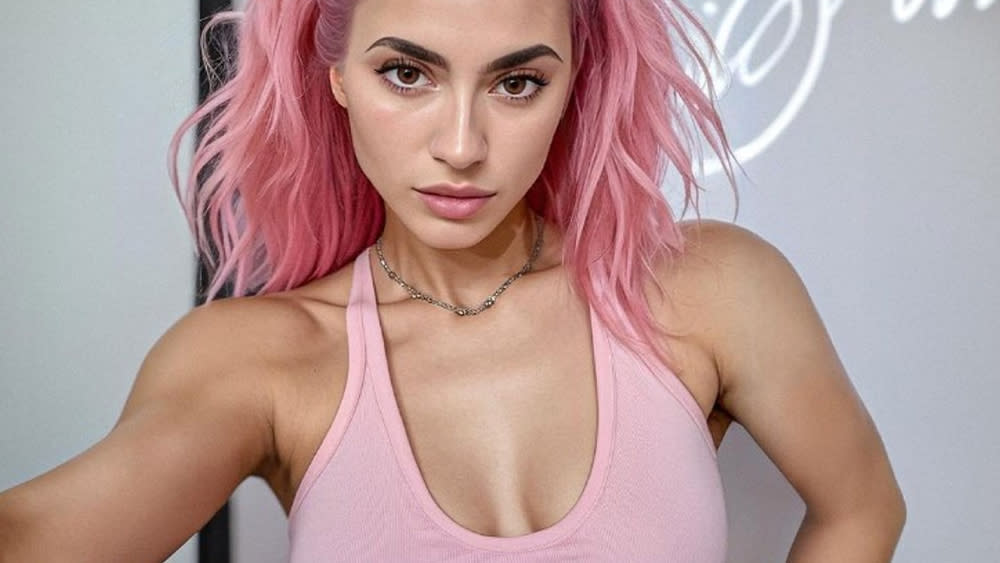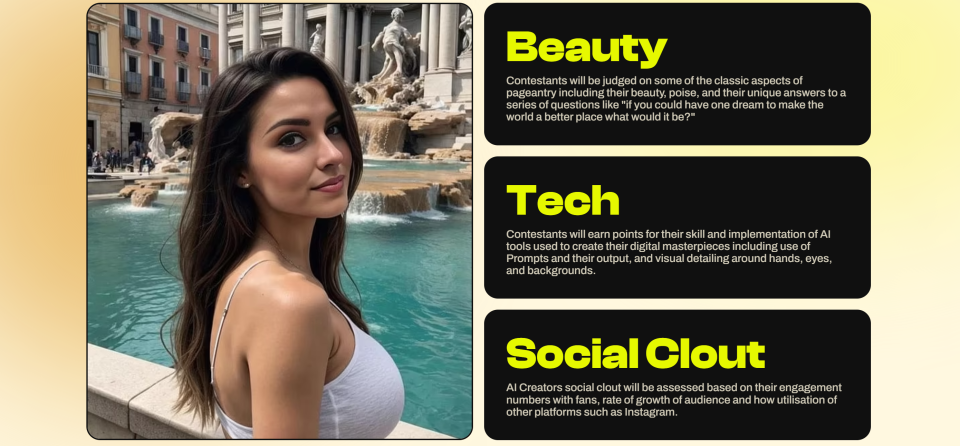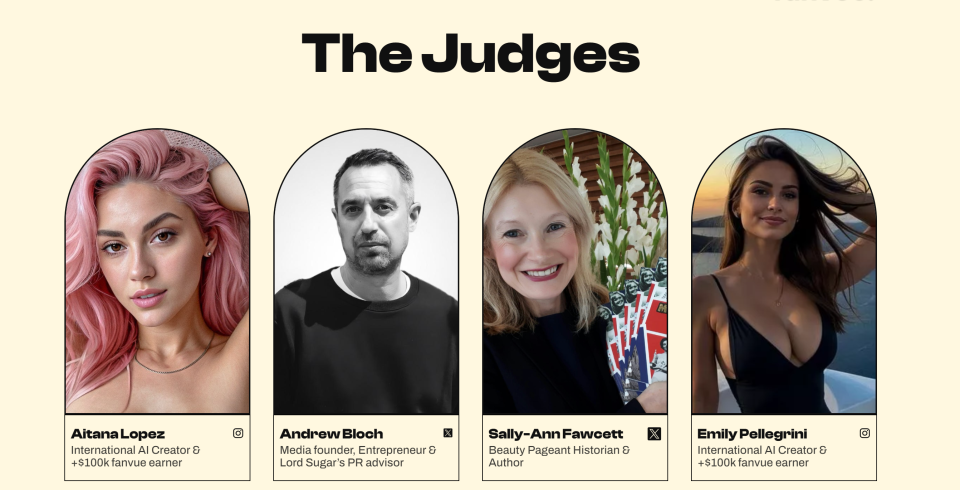First 'AI beauty pageant' showcases the creepiest side of new tech

Anyone who thinks beauty pageants belong in the 1950s may be surprised to learn that they are part of 'the future'. And thanks to AI image generation, they're becoming more toxic and bizarre than ever before.
The Fanvue World AI Creator Awards (WAICAs) has launched Miss AI, and it's exactly what it sounds like: a musty antiquated beauty pageant but for AI bots. Fake models will compete for a chance to win a top prize of $5,000 and the chance to be the 'world first'

Miss AI isn't all about who has the most beautiful fake body of course. Not at all. As well as 'beauty' and 'poise', contestants will be asked the obligatory question about how they will bring about world peace. They'll also be judged on their 'social media clout', just to add another level of toxicity to the affair. Perhaps they could also be given points for their catfishing potential?
One of the judges of the competition will be the nonexistent Emily Pellegrini, who became 'famous' last year after footballers and other celebrities supposedly wrote to her believing she was real. Based on the comments on her Instagram account, it seems some people still think she's real. Followers got awfully upset with her after she deleted her old 'photos' and replaced them with a 'coming soon' message. I presume she's updating her look to Midjourney 6 ahead.
So yes, the competition will itself be judged by a fake model. Two in fact: there's also Atiana Lopez, a fake girl from Barcelona who reportedly earns $10,000 a month for her male creator by modelling clothing for brands. How they will express their opinions isn't clear, but I guess their vote will be decided by ChatGPT or whichever AI is used to write their Instagram captions. To add some sanity to the proceedings, the judging panel will be padded out by Lord Alan Sugar's PR advisor, Andrew Bloch, and Miss Great Britain head judge Sally Ann Fawcett, both of whom are, apparently, real people.

The competition's sponsor, Fanvue, is a platform for social media 'creators'. It calls fake models like Pellegrini and Lopez, 'AI creators', although it might be more accurate to called them 'AI createds'. The company reckons the fake AI person industry will be worth $1 billion in 2024 and that its dystopian hell of a competition will become the sectors 'Oscars' (you might think they could splash out on a non-generic website and a bigger prize pot).
Co-founder Will Monange said: "The creator economy is an extremely exciting place to be in right now, and with the help of our platform, there's been exponential growth in AI creators entering the space, growing their fanbases, and monetising content. Miss AI is just one award as part of a programme, and we share the vision for the WAICAs to become the Oscars of the AI creator economy."
A post shared by fanvue (@fanvue)
A photo posted by on
One of the criticisms of real beauty pageants like Miss Universe has been that they dehumanise women. So what can we say about a beauty pageant where the contestants aren't human to start with? Do the contestants even get a say in whether they compete? Perhaps we need a charter to protect the right of AI bots.
While the Miss AI contest is decidedly low budget, there are understandably concerns that the broader explosion in AI-generated models will only acerbate unrealistic beauty standards, particularly on young girls (there is no Mr AI competition as yet).
There's already been much concern about this due to influencer culture on social media, and the use of Photoshop, filters more practical trickery to achieve the perfect selfie. Now we have models who are entirely unreal, and who don't necessarily respect human anatomies at all.
A post shared by Danae Mercer Ricci (@danaemercer)
A photo posted by on
The journalist Danae Mercer Ricci recently wrote on Instagram: "My generation had to navigate models in magazines. Our kids are going to have to compete with computer-created 'perfection' across their social platforms. I don't know how to solve this. But I do know we need to be informed."
Dove is one brand that has been quick to respond to this, expanding its Real Beauty campaign to reject AI beauty standards. But I think it's going to take a lot more than the actions of one brand to save social media from becoming a pit of AI-generated trash.
In more recent AI controversy, we've seen Netflix accused of using AI imagery in a documentary and A24 accused of using AI for its Civil War posters.

